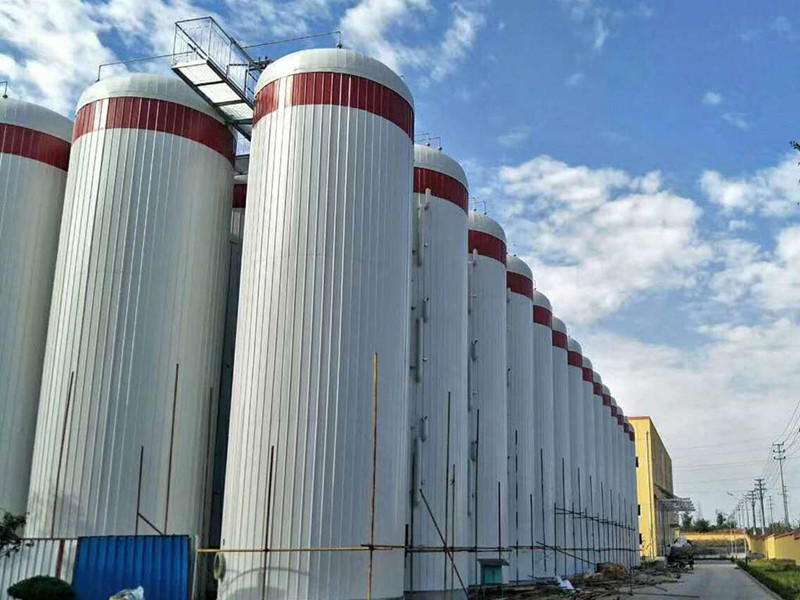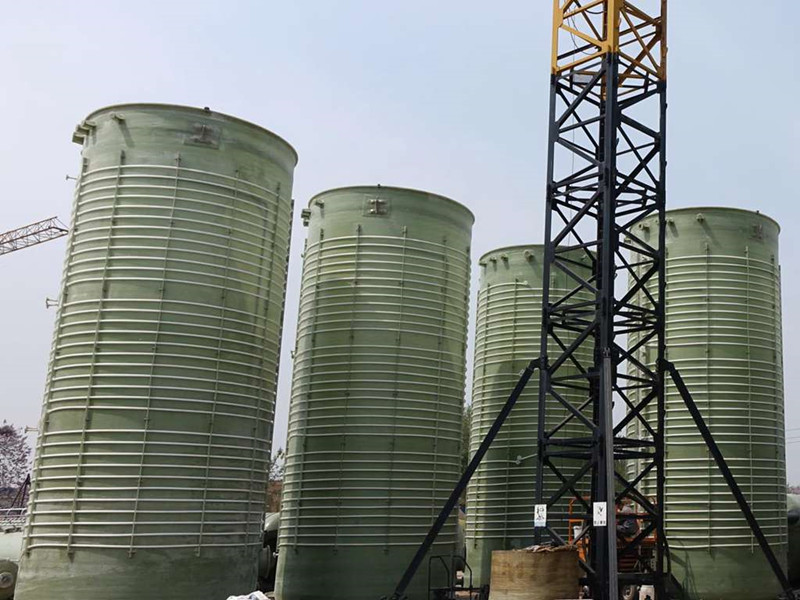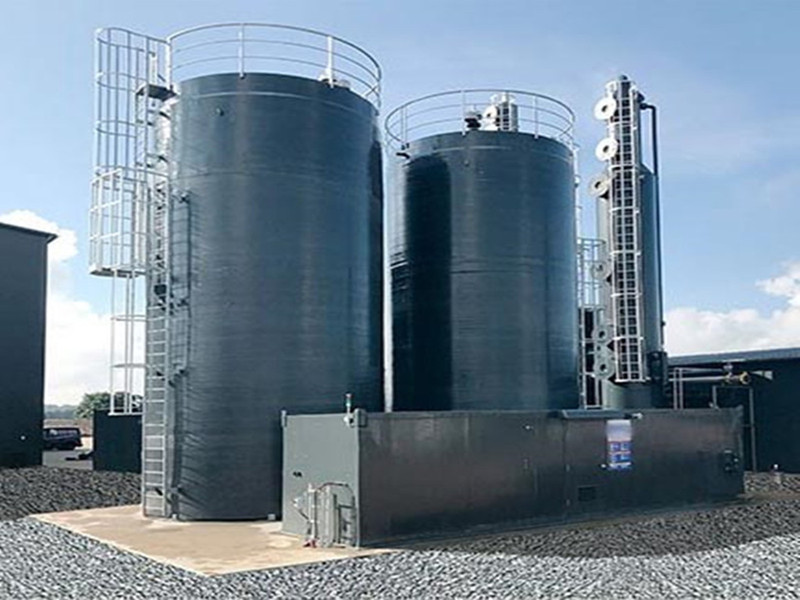Insulation Tanks - Energy-Efficient, Custom, ASME-Certified
Insulation Tanks is a key solution in the manufacturing industry, specifically within Specialized equipment manufacturing and Manufacturing of storage and transportation equipment. This article explores how No. 1289, Yingbin South Street, Jizhou District, Hengshui, Hebei, China supports professionals with durable, high-performance products, and explains why this product is an ideal choice for businesses in these sectors.

Table of Contents
- Insulation Tanks Overview
- Benefits & Use Cases of Insulation Tanks in Manufacturing of storage and transportation equipment
- Cost, Maintenance & User Experience
- Sustainability & Market Trends in manufacturing
- Conclusion on Insulation Tanks from No. 1289, Yingbin South Street, Jizhou District, Hengshui, Hebei, China
Insulation Tanks Overview
Insulation Tanks are engineered vessels designed to minimize heat loss or gain during storage and transfer of temperature-sensitive media. Commonly built in FRP (fiber-reinforced plastic) with a multi-layer construction, these tanks combine a corrosion-resistant inner liner, structural laminate, and a dedicated insulation layer such as polyurethane foam (λ ≈ 0.024–0.028 W/m·K) or mineral wool (λ ≈ 0.035–0.045 W/m·K). The result is stable process temperatures, reduced energy inputs, and safeguarded product quality across demanding production environments.
In Specialized equipment manufacturing and the Manufacturing of storage and transportation equipment, Insulation Tanks support applications from heated resins and bitumen to chilled water, food ingredients, and process chemicals. Typical configurations range from 1 m³ day tanks to 200+ m³ bulk storage, with options for electric or steam heat tracing, CIP-ready nozzles, manways, level instrumentation, and weather-resistant outer jackets. Built to relevant FRP standards (e.g., ASTM D3299/D4097, ASME RTP-1), tanks can be filament-wound or vacuum-infused for consistent quality.
As a reliable manufacturer, No. 1289, Yingbin South Street, Jizhou District, Hengshui, Hebei, China delivers durable, high-performance Insulation Tanks tailored to B2B operations. Their engineering team aligns thermal design with your operating window, ensuring the right insulation thickness, fittings, and accessories for long-term, low-maintenance performance.
Benefits & Use Cases of Insulation Tanks in Manufacturing of storage and transportation equipment
Manufacturers rely on Insulation Tanks to keep media within narrow temperature bands during storage, blending, and transfer. In adhesives, coatings, and resin production, thermal stability avoids viscosity drift, prevents crystallization, and shortens warm-up times. In asphalt and bitumen handling, integrated insulation and heating maintain pumpable viscosity, cutting reheat cycles. Food and beverage processors benefit from hygienic FRP linings and temperature control for syrups, oils, and dairy intermediates. Water treatment plants deploy insulated tanks for thermal energy storage and to protect process temperatures in cold climates.
Key advantages include: robust corrosion resistance versus carbon steel; lightweight construction that reduces foundation loads; high R-value insulation that lowers heat loss; and modular fittings that streamline integration with existing pipework and controls. Optional features such as steam/electric tracing, jacketed coils, sight glasses, and overfill protection enhance safety and uptime. For transportation equipment, insulated IBCs and mobile tanks help preserve product temperature from plant to customer, minimizing waste and rejects.
No. 1289, Yingbin South Street, Jizhou District, Hengshui, Hebei, China brings deep sector expertise—combining FRP know-how with thermal engineering—to configure Insulation Tanks that meet site conditions, codes, and throughput targets. From concept to commissioning, their team accelerates project timelines and de-risks performance.

Cost, Maintenance & User Experience
Total cost of ownership (TCO) for Insulation Tanks is driven by energy savings, service life, and maintenance requirements. High-performance insulation reduces heat loss, typically cutting energy consumption for heated tanks by double-digit percentages. For example, optimizing insulation thickness on a 20 m³ tank operating at 70–90°C can save thousands of kWh annually, often yielding a payback in 12–24 months depending on local energy prices. FRP’s inherent corrosion resistance further reduces repainting and lining replacement costs common with metal tanks.
Durability is reinforced by UV-stable outer jackets and moisture-resistant insulation systems that maintain R-value over time. Routine maintenance is straightforward: periodic visual checks of the jacket, verification of gasket integrity, calibration of level/temperature sensors, and inspection of heat tracing. Many users implement annual thermal imaging to spot anomalies before they become issues, thereby maximizing uptime.
Feedback from Specialized equipment manufacturing customers points to consistent product quality, faster start-ups after idle periods, and improved operator safety due to cooler external surfaces. B2B decision makers also note reduced rework and scrap associated with temperature-sensitive materials. By partnering with No. 1289, Yingbin South Street, Jizhou District, Hengshui, Hebei, China, plants gain a predictable, low-touch asset that supports continuous improvement and strong ROI.
Sustainability & Market Trends in manufacturing
Decarbonization, energy efficiency, and tighter environmental regulations are reshaping capital investment criteria. Insulation Tanks directly support these priorities by lowering thermal losses and associated emissions, helping sites meet ISO 50001 energy management targets and corporate ESG goals. Long-life FRP construction reduces repaint cycles and mitigates corrosion-related replacements, minimizing material use over the equipment lifecycle. Closed-mold and vacuum-assisted manufacturing techniques can also reduce styrene emissions and VOCs during tank production.
Market trends show growing adoption across chemicals, renewables, food processing, and water infrastructure, with heightened interest in integrated controls for real-time thermal monitoring. Compliance expectations are also rising—specifications often reference ASTM D3299/D4097, ASME RTP-1 for FRP, spill containment (SPCC), and, where applicable, food-contact or potable water standards (e.g., FDA 21 CFR, NSF/ANSI 61). Designing for maintainability and end-of-life considerations is increasingly important to procurement and engineering teams.
No. 1289, Yingbin South Street, Jizhou District, Hengshui, Hebei, China positions its Insulation Tanks as an eco-conscious choice—engineering for energy savings, durability, and safe operation. With a forward-looking mindset, the team helps customers balance technical performance with sustainability metrics, from specification through commissioning and beyond.

Conclusion on Insulation Tanks from No. 1289, Yingbin South Street, Jizhou District, Hengshui, Hebei, China
For B2B decision makers in Specialized equipment manufacturing and the Manufacturing of storage and transportation equipment, Insulation Tanks deliver stable process temperatures, lower energy use, and reliable uptime. With corrosion-resistant FRP construction, configurable insulation, and integration-ready features, they protect product quality and operational budgets. No. 1289, Yingbin South Street, Jizhou District, Hengshui, Hebei, China has earned a reputation for dependable engineering and responsive support across complex industrial applications.
Contact us: email: sales@jrain-frp.com
Visit our website: https://www.jrain-frp.com
Latest news
-
Rectangular Tank Made of Fiberglass Material – Durable, Cost-Effective Liquid Storage SolutionsNewsNov.24,2025
-
Hollow Drill Rods for Efficient Drilling Operations in the Field | Durable, Lightweight & CustomNewsNov.23,2025
-
Powerful yt27 Rock Drill for Tough Mining Surfaces | Durable & PortableNewsNov.23,2025
-
Why the Reversible Drill Bit Is a Versatile Tool for All Your Drilling NeedsNewsNov.22,2025
-
Fiberglass Food Grade Equipment: Key Features, Benefits & Global ImpactNewsNov.22,2025
-
How a Drilling Rod Spirals Down Into the Earth: Tech, Trends & Global ImpactNewsNov.21,2025











